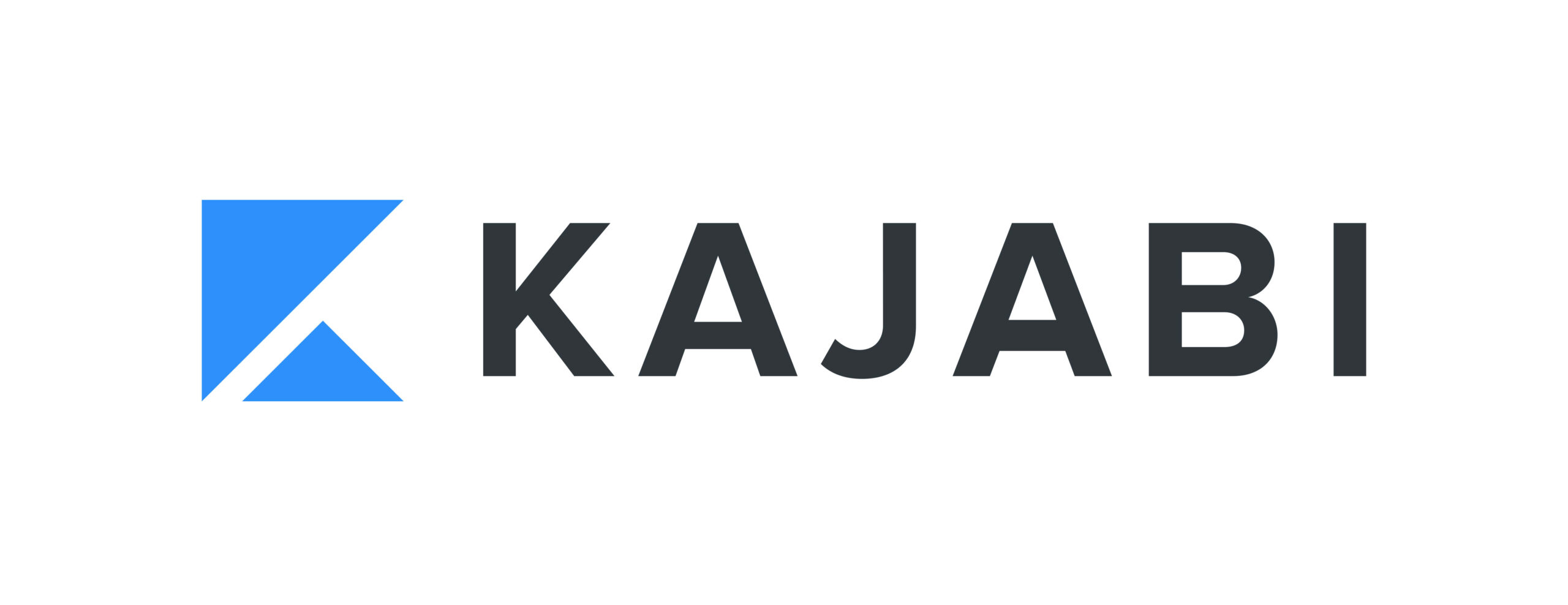If you can’t decide between Skool and Kajabi, you are in the right place. Skool and Kajabi are two popular LMS software companies available, but their intended audiences are quite different. Compare them side by side:
Key Takeaways
- Skool is an online course platform that focuses on providing a platform for educators and teachers to create and sell online courses. It offers features for course creation, student engagement, and assessment. Skool is suitable for educators and institutions looking to offer online courses to their audience. However, it may not provide the same level of comprehensive marketing and website building features as Kajabi.
- Kajabi is an all-in-one platform designed for creating, marketing, and selling online courses, memberships, and digital products. It offers features for course creation, website building, sales funnels, and marketing automation. Kajabi is suitable for individuals and businesses looking for a platform that covers all aspects of course creation and marketing. While both platforms focus on online course creation, Kajabi’s broader set of features, including comprehensive marketing and website capabilities, may make it a better fit for businesses looking for a comprehensive solution to create, market, and sell their online courses. Skool, on the other hand, is more specialized for educators and institutions looking to provide courses to their audience.


Main Differences Between Skool and Kajabi
Skool and Kajabi are platforms with different focuses. Skool is designed for creating online schools and courses, while Kajabi offers a broader suite of tools for course creation and marketing. Users’ priorities for platform features and simplicity will influence their choice.
Pricing of Skool and Kajabi
Here are the pricing plans of Skool and Kajabi:
Skool
Here is the pricing information for Skool:
- Free Trial: Skool offers a 14-day free trial.
- Monthly Plan: After the free trial, the pricing is $99 per month.
Kajabi
Here is a breakdown of the pricing plans for Kajabi:
- Basic Plan: $149 per month ($119 per month when paid annually). This plan includes features such as unlimited landing pages, unlimited marketing emails, 3 products, 3 funnels, and 10,000 contacts.
- Growth Plan: $199 per month ($159 per month when paid annually). This plan includes everything in the Basic plan, plus additional features such as 15 products, 15 funnels, and 25,000 contacts.
- Pro Plan: $399 per month ($319 per month when paid annually). This plan includes everything in the Growth plan, plus additional features for larger businesses.
It’s important to note that these prices may vary and it’s always best to check the official Kajabi website for the most up-to-date pricing information. Additionally, Kajabi offers a 14-day free trial for users to explore the platform before committing to a paid plan.
My experience with Skool and Kajabi
After using and testing Skool and Kajabi, this is what I liked and didn’t like about both platforms:
Skool
Skool offers an interesting platform for online courses and memberships. What caught my attention is its community-centric approach – it’s not just about courses, but creating a space for interaction. The inclusion of live classes and events is a standout feature, enhancing engagement. Moreover, the ability to offer courses and memberships together is a plus. This allows you to diversify your offerings and cater to different audience needs. However, Skool might not have as extensive of a feature set as some other platforms, especially for advanced marketing automation. If you’re looking for comprehensive marketing tools, you might need to integrate with other software. Just be aware that pricing can vary based on your audience size and features needed. Make sure the cost aligns with the value you get.
Kajabi
What caught my attention with Kajabi is its all-in-one platform for online businesses. You can build websites, create online courses, and even handle email marketing, all in one place. It’s a fantastic way to streamline your operations. One feature I found really useful is their course creation tools. You can organize your content effectively, drip-feed lessons, and interact with your students. It’s a comprehensive system that’s great for educators and content creators. On the flip side, the pricing can be a bit on the higher side, especially for beginners or smaller businesses. While you get a lot of tools bundled together, it’s important to consider your budget and whether you’ll be using all the features they offer. The bottom line is that Kajabi is a powerful all-in-one platform, especially for those in the online education space. Just be mindful of the pricing structure and make sure it aligns with your business needs.
Our Winner: Kajabi
After analyzing both Skool and Kajabi, we concluded that the best choice overall is Kajabi.
This doesn’t necessarily mean that the other choice is particularly bad. Some cases could even be the other way around, depending on your specific needs.





